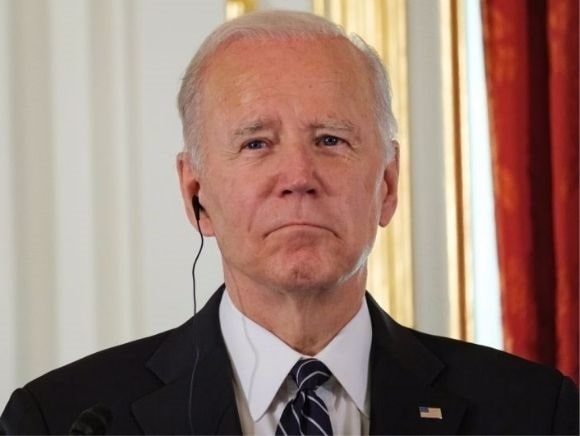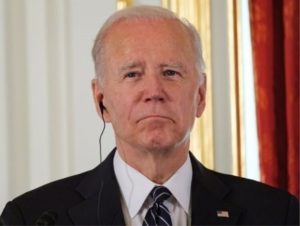
Joe Biden (Photo by Nicolas Datiche / Sipa Press / Pool/Anadolu Agency via Getty Images)
The established US foreign policy position on China and Taiwan is “strategic ambiguity.” But the ambiguity part got lost when President Joe Biden, on May 23, answered a reporter’s question at a press conference in Tokyo, Japan, about the United States getting “involved militarily to defend Taiwan, if it comes to [China attacking Taiwan].” Biden responded, “Yes. It’s a commitment we made.” That seemed to be a definitive “yes,” but then faster than a White House staffer can gasp, statements began streaming from Biden’s press office, backtracking and clarifying. Finally, a spokeswoman for the president explained the United States has not changed its position on the One China policy.
This is not the first time Biden has explained his personal view of US policy toward Taiwan in the same words. The following exchange took place at a town hall last October when the moderator asked, “So, you’re saying that the United States would come to Taiwan’s defense if China attacked?” Biden answered without hesitation, “Yes, we have a commitment to do that.” However, Liberty Nation pointed out: “But that is not exactly right. A White House spokesperson later explained that the president meant to say the US is bound by agreements to give Taiwan the military equipment to defend itself.” Jennifer Jacobs, writing for Bloomberg, explained:
“Since taking office, Biden has repeatedly used language about Taiwan that appeared to alter policy in place since around the time the US switched diplomatic recognition to Beijing. Last year, Biden or his aides needed to clarify his remarks on Taiwan on at least four separate occasions, including his description of the island as ‘independent’ — China’s oft-stated red line for an invasion.”
 The confusion stems from US policy intended to create a façade of uncertainty. Policy wonks at the State Department continue to hold the position of “strategic ambiguity,” leaving Beijing guessing whether the US military will fight to protect the Taipei government and its people. That fog of doubt could exist in the past when the United States was more powerful — economically, militarily, and geopolitically. It’s not clear that the same policy can work going forward.
The confusion stems from US policy intended to create a façade of uncertainty. Policy wonks at the State Department continue to hold the position of “strategic ambiguity,” leaving Beijing guessing whether the US military will fight to protect the Taipei government and its people. That fog of doubt could exist in the past when the United States was more powerful — economically, militarily, and geopolitically. It’s not clear that the same policy can work going forward.
Furthermore, the ambiguity can be sustained only if China believes the US national security leadership has the will and determination to use military force if it chooses. Does the Biden White House have such “will and determination”? Former Speaker of the House Newt Gingrich gave Fox and Friends a slightly different spin:
“I think that all of [Biden’s] key people are hard line left-wingers who are terrified of the world, and I think that Biden instinctively here was right … I think that the clearer you can be, we’re not in a situation of strategic ambiguity, because you don’t want Xi Jinping to try to gamble and try to take Taiwan. I thought Biden was right, and his staff is nuts.”

Joe Biden (Photo by Nicolas Datiche / Sipa Press / Pool/Anadolu Agency via Getty Images)
Does the White House’s habit of repeatedly explaining what the president says build confidence in the administration? The litany of clarifications implies a critical discontinuity in the broader US national security strategy. In contrast, the People’s Republic of China (PRC) creates no such confusion; it is clear, committed, persistent, and preparing to achieve its objective. “China claims democratically governed Taiwan as its own territory and in the past two years has stepped up military and diplomatic pressure to assert its sovereignty claim,” Reuters reported.
The last thing the Biden administration should want is to prompt the very military confrontation its policy of “uncertainty” is supposed to prevent. The PRC will take advantage of any pretext for achieving its objective. However, if Gingrich is correct and Biden’s instincts promote one policy, and his staff is fixed on another, that does create an ambiguity of the dangerous type, potentially leading from confusion to miscalculation, and miscalculation to conflict. It would be best for the Biden administration to speak with a single voice. In most administrations, that voice belongs to the president.
The views expressed are those of the author and not of any other affiliation.
Remember to check out the web’s best conservative news aggregator
Whatfinger.com — the #1 Alternative to the Drudge

